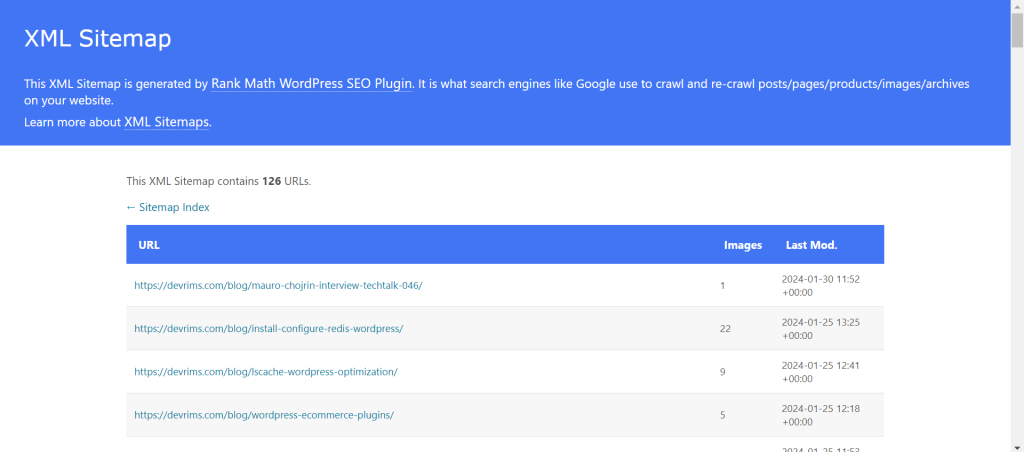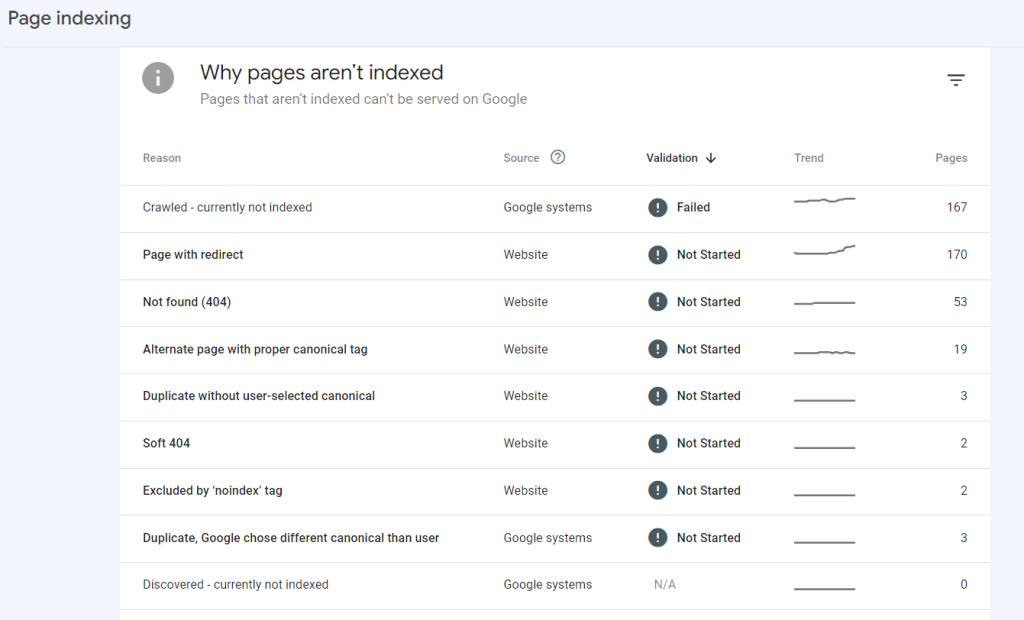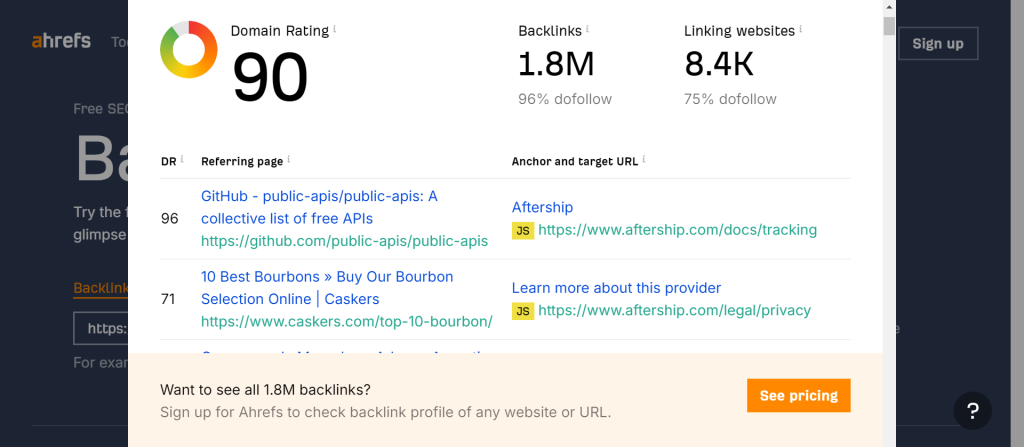Search engine optimization (SEO) is essential for ecommerce websites to drive traffic, increase visibility, and boost conversions. As one of the most popular ecommerce platforms, Magento powers over 12% of online stores. However, many Magento stores need to optimize their sites for search engines.
This article will provide a comprehensive Magento SEO audit for online stores to help improve search rankings and traffic. I will analyze significant on-page and off-page factors that impact SEO, including site architecture, URL structure, page speed, content, backlinks, and more. Additionally, I will offer actionable recommendations to address any issues or limitations.
This audit aims to help your Magento site improve visibility and unlock its potential traffic and sales capabilities through SEO. Let’s get started!
Technical SEO Audit
Site Indexing and Crawlability
Ensuring that search engines can properly crawl and index your Magento site is the foundation of technical SEO.
Sitemaps:
First, submit XML sitemaps of your site products, categories, pages, and content to search engines. This helps search bots more efficiently discover URLs to crawl. An example Magento sitemap XML file is shown below:

Search Console Errors:
Next, check the Search Console for crawling or indexing errors like “Not Found” 404s or blocked pages. Fix any issues that surfaced in the Search Console to improve crawlability.

Fix Broken Links:
Additionally, check for any broken links on your site leading to 404s using Screaming Frog or LinkAssistant. Replace or remove broken links that frustrate search bots.
Improve Site Architecture:
Evaluate if your Magento site has a streamlined information architecture and structure to help search bots crawl efficiently. Ensure your important pages are accessible to find and access through nested site navigation and architecture.
Optimize Page Load Speeds
Fast page load times are vital for providing users with a good experience and SEO rankings. Here are key ways to improve your Magento site’s speed:
Minify Code:
Minify CSS, JavaScript, and HTML code to reduce file sizes that have to load. Remove unnecessary whitespace, comments, and other characters without changing functionality. Magento has built-in tools like minification and bundling to automate this.
Compress Images:
Compress and resize large images to enable faster uploads. Use a plugin like Smush to optimize images.
Cache Pages:
Leverage caching capabilities were built into Magento to serve static page versions, avoiding resource-draining backend processes. Use full-page caching and other cache types.
Content Delivery Network:
Use a CDN to store static cache copies at nodes worldwide, speeding up content delivery by location. Magento works seamlessly with CDNs like Fastly.
Upgrade Hosting:
If speed remains problematic, upgrade to optimized Magento hosting plans for sites running resource-intensive ecommerce platforms.
Fast page speeds keep visitors engaged and support SEO through improved user experience and crawlability.
Enhance Site Security
Proper security protections improve SEO by building trust and preventing threats that could disrupt operations.
Install SSL Certificate:
Install an SSL certificate to enable HTTPS across your entire Magento site. This encrypts connections, protects sensitive data, and signals legitimacy to visitors and search engines.
Validate Security Headers:
Configure proper HTTP response security headers like Content-Security-Policy and X-Frame-Options, which protect against cross-site scripting and clickjacking threats.
Perform Malware Scans:
Regularly scan your Magento site for malware infections, which could damage SEO if search engines flag malicious embedded code or redirect spam. Use a security plugin to automate checks.
Follow security best practices as a safeguard for technical SEO. Ask your hosting provider about additional protections they offer as well. A secure site provides peace of mind to customers while improving organic visibility.
On-Page SEO Optimization
On-page SEO refers to optimizations made directly on individual web pages. Boosting your Magento product and content pages with relevant keywords and text can significantly enhance rankings and traffic.
Optimize Page Titles and Meta Descriptions:
Page titles and meta descriptions should be well-crafted and customized for every page. Avoid duplicate or missing titles across pages.
Include important, relevant keywords naturally, make titles under 60 characters, and make meta descriptions 150-160 characters summarizing content for search engine result snippets.
Improve Content Quality and Keyword Targeting:
Create valuable, original content that answers customer questions and focuses on relevant keyword terms, helping search engines understand content themes to correctly index pages.
Fix Duplicate Content Issues:
Ensure the same or similar content does not appear across multiple URLs, which can confuse search engines regarding the canonical page to index. Configure proper URL redirects, add rel=”canonical”, or de-index copies.
Leverage Schema.org and Structured Data:
Add Schema.org structured data, microformats, and microdata to enrich pages with machine-readable properties for better indexing and display in SERPs. It can enhance site links, breadcrumbs, and more.
Optimizing the content and technical structure directly on pages gives search engines the signals to understand correctly and value pages for ranking against relevant searches.
Link Building
Gaining backlinks from external high-authority websites signals trust and relevance to search engines, enhancing domain authority and search rankings over time.
Identify Link Building Opportunities:
Research link prospects like:
- Industry blogs
- Business Directories
- Relevant online publications
- Complimentary services and vendors
Look for sites accepting guest posts or listing submissions. Evaluate domain authority metrics when assessing prospects.

Outreach to High Authority Websites:
Create personalized pitches and email outreach to editors and site owners. Offer to create exclusive articles or analyses tailored to their audience on topics they cover. Follow up respectfully.
Develop Creator Content and Assets:
Leverage your expertise to create compelling infographics, how-to guides, tools, and other visual assets to provide value, gaining backlink opportunities.
Participate in Industry Forums and Groups:
Engage in relevant communities and answer questions when you can provide thoughtful expertise. Add links to your website where relevant.
By implementing an effective outreach-based link-building strategy, you can obtain authoritative backlinks steadily over time to enhance domain authority and propel Magento SEO rankings.
Analytics Review and Tracking
Proper tracking allows you to monitor the impact of SEO efforts and guide business decisions using data.
Install Google Analytics and Enable Ecommerce Tracking:
Install Google Analytics and connect to your Magento store. Enable ecommerce tracking features to see metrics on transactions, revenue, shopping behavior, product performance, and more.
Set Up Conversion Rate Optimization Tracking:
Track on-site interactions that lead to conversions like form submissions, downloads, telephone calls, adds to cart, and purchases. Identify areas for optimization.
Develop Key Reports and Dashboards:
Leverage Google Analytics data to create reports, charts, and dashboards, providing insights into site searches, traffic sources, top pages, landing/exit pages, geography, devices, and more essential KPIs.
Use Data to Inform Future SEO Decisions:
Analyze traffic and conversion data to see the impact of efforts. Continuously improve SEO by allocating resources effectively towards the highest potential areas. Connect insights to business growth opportunities.
Implementing robust SEO analytics allows you to continually refine efforts for maximum ROI continually, ultimately driving more revenue.
Conclusion
In this comprehensive Magento SEO audit, we analyzed several integral areas of on-page content, technical site health, backlinks, and analytics. Key opportunities for improvement identified include:
- Optimizing page speeds.
- Enhancing content for keyword targeting.
- Earning additional high-quality backlinks.
- Leveraging analytics for data-driven decisions.
Based on the audit, I recommend focusing on:
- Increasing site speed through minification, caching, and upgrading hosting
- Producing more in-depth blog content targeting relevant searcher intent keywords
- Outreaching to industry websites to contribute exclusive guest articles
- Developing custom analytics reports to track SEO KPIs continuously
Following SEO best practices enables sustainable growth. Let your optimized online store unlock its fullest potential!

















